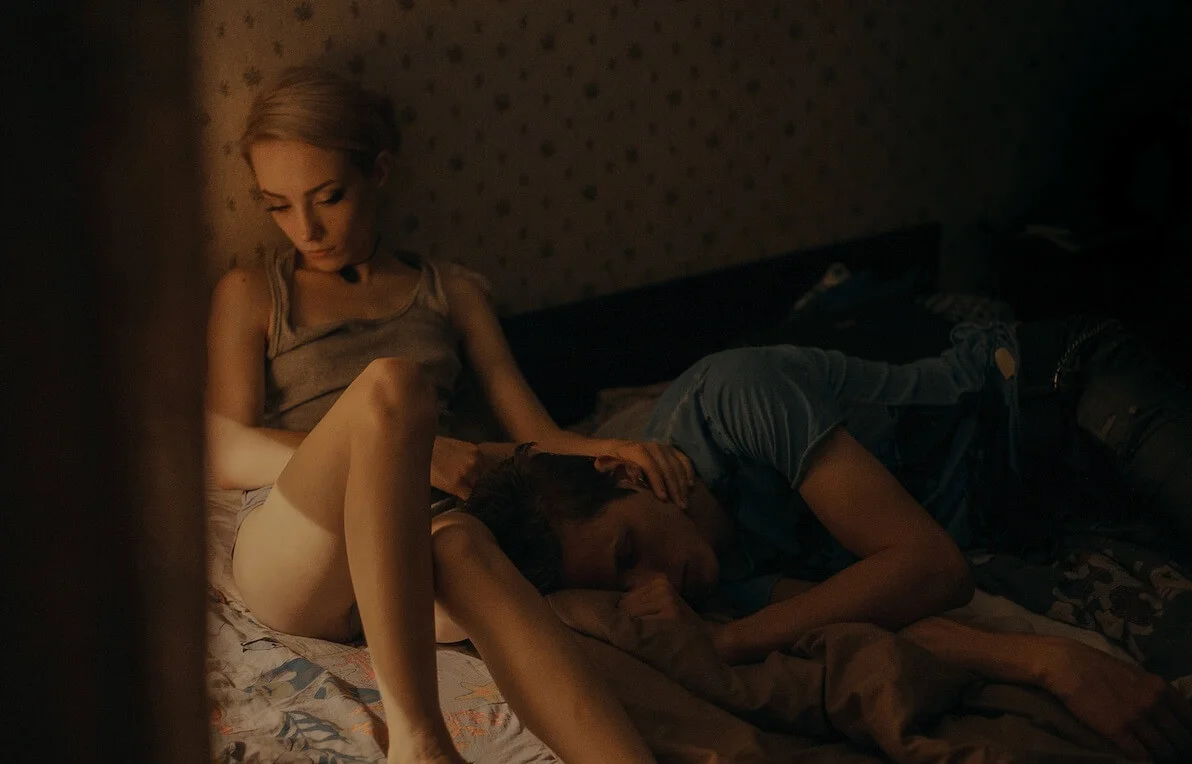
The Blog
Recently Featured
All Blogs
A Date with Procrastination
The more important the activity is to our soul’s evolution, the more resistance you will feel.
-Steven Pressfield
I’d like to introduce you to my new friend, Procrastination. Well, he’s not really new, quite old come to think of it. We go way back. I suppose we’ve rekindled something as of late, something good, different.
The more important the activity is to our soul’s evolution, the more resistance you will feel.
-Steven Pressfield
I’d like to introduce you to my new friend, Procrastination. Well, he’s not really new, quite old come to think of it. We go way back. I suppose we’ve rekindled something as of late, something good, different.
Stuck places, friendly faces
Our rendezvous happened this past Tuesday morning as I was about to sit down and write this week’s blog post. I typically have some foggy idea as to what I’ll write about from week to week which is always nice. Like many bloggers, my ideas come from a storehouse of life experience, connections made in random and serendipitous ways, books I am reading, and most of all, the resilience stories of heroes I observe around me; friends and peers alike. Lovely, right? Well, this past Tuesday it wasn’t working out so well for me.
Wildlife
Earlier that morning, I decided to take a walk in order to clear my head, breathe some crisp fall air, and behold the magical leaves shamelessly showing off in the sun drenched blue sky. It seems we have been cheering on the fulfillment of fall in Nashville the past several weeks and my, she certainly knows how to make a grand, fashionably late entrance. Despite my morning jaunt out into her glorious embrace, I still had nothing. Nada. Zip. Zilch. I saw a few wild turkeys though.
Clean
When I have a deadline, be it taxes, writing, learning a new song, homework of any kind, (did I say taxes?), I don’t just procrastinate, I clean. This is hilarious because I hate to clean. I am not a cleaner. Don’t get me wrong; I’m not a slob, I just tend to wait until I literally can’t see the bottom of my closet, throw my hands up in the air, and have a full on closet detox, as my brilliant friend Lindsley calls them. Intentional, “unnecessary” cleaning always happens as a familiar step beforeI actually procrastinate.
Just one more cup
I sat down at my (clean) kitchen table only to decide I needed to make another pot of coffee. That’s it! Perhaps have another slice of gluten-free pumpkin bread, too. (Trader Joe’s makes the best mix. I’m not even gluten sensitive, I suppose I just feel better about eating half the loaf.) There we were, me, my coffee, my second breakfast, and my devilishly charming friend Procrastination. “Dear God, I feel like a hobbit,” I thought to myself. What now? Pinterest, then a few quick emails, yoga anyone? I had forgotten how entertaining my old friend was.
Steven Pressfield
My absolute favorite book on the topic of the creative pursuit and process is Steven Pressfield’s The War of Art. I’m a dreadfully slow reader and finished this little number in one afternoon on a park bench somewhere in the West Village while visiting NYC several years ago. No doubt, this was the most inspiring city to read those words in what with the beautifully diverse collection of roughly 1.5 million people tirelessly pushing their dreams forward to the rhythm of steely tenacity, very little sleep, and a whole lot of espresso . From that day forward, I’ve been an evangelist of this book, giving away countless copies to friends and clients, alike. He pretty much rocked my world with his jolting if not merciless approach to procrastination.
Here’s what he says:
“The most pernicious aspect of procrastination is that it can become a habit. We don’t just put off our lives today; we put them off till our deathbed. Never forget: This very moment, we can change our lives. There never was a moment, and never will be, when we are without the power to alter our destiny. This second we can turn the tables on Resistance. This second, we can sit down and do our work.”
Can I get a witness?
Amen, yes?! If you read this post and all you take away is that one quote and a kick in the pants to hop on Amazon immediately and order The War of Art, I have succeeded. Pressfield introduced me to this curious idea of Resistance, as was mentioned in the quote. We all know what resistance is: that tight feeling we have in our chest and muscles, the thoughts of unworthiness that pop up like clockwork saying, “I don’t deserve to carve out the next hour and write, I’ve got so much to do!”, the anxiety that seeps in perpetrating those once calm and contented cells in our body. Pressfield explains, “The more important the activity is to our soul’s evolution, the more resistance you will feel to it-the more fear you will feel.”
The Gift
If resistance resulting in procrastination is actually a sign of our soul’s deepest expression and evolution as Pressfield waxes so poetically, then I am convinced we are in dire need of a sit down “come to Jesus” reckoning with it! My avoidant and dreaded coffee date with Procrastination was in fact, profoundly necessary. It was my heart’s battle cry against that nasty gremlin, perfectionism. It was an invitation to show up and reclaim the very act that keeps my soul alive and grounded. Someone out there may hopefully read the words I write through email or a Facebook feed or something and that is truly an honor. There is a much higher purpose though. The invaluable gift of resistance is the power that flows from our choice to lean in, show up, and give sacred space to our voice when the easy way out is to organize our sock drawer three times instead. We align with our destiny when we lean into resistance. This feels really good.
In Repair
As a lifelong perfectionist in a constant, sobering state of recovery, I am learning to become my own sponsor. This is the credo that keeps me showing up and sitting down with pen and paper in hand: Anything worth doing is worth doing poorly.
Anne Lamott spins it this way in her brilliant Bird by Bird (another must read): “Almost all good writing begins with terrible first efforts. You need to start somewhere. Start by getting something—anything—down on paper. What I’ve learned to do when I sit down to work on a shitty first draft is to quiet the voices in my head.”
I would extend that to say almost all creative endeavors begin with terrible first efforts!
Say Yes
Procrastination has gotten a bad wrap over time. I want to help clean up the confusion. After all, procrastination is merely saying no to something and yes to another, more attractive option, yes? I say we wise up, stay very present to that knowing, if not uncomfortable nudge called resistance, and have our way with those illusive little pixies, perfectionism and projection. They have stolen us away from our dreams, one bad, distracting idea at a time, for long enough. Today, let’s begin again.
Love,
katie
xoxo
Finding Family: The Broken Road Home
You can kiss your family and friends good-bye and put miles between you, but at the same time you carry them with you in your heart, your mind, your stomach, because you do not just live in a world but a world lives in you.
-Frederick Buechner
I’m not sure if it’s the fall weather encroaching or the fact that I’m becoming more nostalgic with age, but something has been at the forefront of my heart and mind as of late and I can’t seem to shake it. I don’t want to shake it. It’s beautiful, complex, frustrating, exhilarating, heartbreaking, fun, weird, grounding, dangerous, and safe all at once.
You can kiss your family and friends good-bye and put miles between you, but at the same time you carry them with you in your heart, your mind, your stomach, because you do not just live in a world but a world lives in you.
-Frederick Buechner
I’m not sure if it’s the fall weather encroaching or the fact that I’m becoming more nostalgic with age, but something has been at the forefront of my heart and mind as of late and I can’t seem to shake it. I don’t want to shake it. It’s beautiful, complex, frustrating, exhilarating, heartbreaking, fun, weird, grounding, dangerous, and safe all at once.
Everyone has it on some level and have been seriously impacted by it, undoubtedly. I believe we must somehow, either literally or figuratively, leave it at some point in order to honestly choose to love and enjoy it in the end. This thing is called family.
Longing for Camelot
What comes up for you with the mention of family? Is it sadness? Regret? Longing? Love? For me, this slow and heavy wave of gratitude washes over. It wasn’t always like this as my journey of self-exploration and wholeness have taken me through some dark stretches of distance from my family. Of course there were disappointments due to impossible expectations, yet what I am learning is that many of those expectations are really for myself, not my family. Camelot was always an illusive grasp away. This post is a personal one; one I hope you don’t mind me sharing. It is one of stark honesty and yearning. This post is for anyone who longs for family- for home; anyone who may sit in a place of loss and loneliness.
This past weekend my husband and I had a marriage celebration for close family and friends in our hometown of Nashville. We both come from large families and were unable to invite everyone to our teeny tiny wedding ceremony in California. For this reason, we decided to have a small reception back home for those who couldn’t make the trip. I saw relatives I hadn’t seen in years and met several new ones I had just gained. It was truly special.
Late Bloomer
I waited until age 36 to get married. Though this wasn’tnecessarily on purpose, it was absolutely perfect timing. God knew that all along. I say this because I have never quite experienced anything like a wedding or shower where I felt the love of lifetime relationships joined together and funneled in my direction until the past several months. It is humbling, beautiful, and a bit awkward as I always just feel I make things a little bit awkward with my pointed strangeness in the center of an outpouring of goodwill. Receiving just for the sake of receiving doesn’t come naturally, I like to earn it.
The power of choice
I realize I am blessed. I realize something deep and glaring and worth its weight in gold: Relationships are the most important thing and should be intentionally nurtured over time. Sometimes this comes in the form of a family of origin; often times this comes in a family of choice, one we build.
I love how Elizabeth Gilbert puts it: “We must take care of our families wherever we find them.” The truth is, for many of us, the word family brings up immeasurable pain and anxiety as safety and protection were needs that went missing in our family of origin. In therapy, we spend a great deal of time unpacking that pain and trauma in order to rewire a narrative of value, love, acceptance, and possibility. Needs such as provision, encouragement, affection, play, and structure were denied and as a result, had to be met elsewhere. Survival became twisted resulting in unhealthy relationships, denial of our needs altogether, parenting aloof parents, acting out behavior, and on and on.
Bloodlines
I have been watching, no bingeing on the Netflix series, Bloodlines, recently. Wow… Talk about some serious family dysfunction. They (the Rayburn’s) make The Sopranos look like a squeaky non-animated version of the Flintstones. It seems there is a dominant thread touching every piece of brokenness: dishonesty. As a result, everyone is operating out of their own best version of who they are and what might be happening.
More of my story
In Falling Upward, Richard Rohr aptly concludes, “When you get your, ‘Who am I?’, question right, all of your,’What should I do?’ questions tend to take care of themselves”. The first half of life is often spent grappling with identity, or at least mine was. Hell, some days I feel the ballot is still out. Our first mirror of identity dwells in the home and is largely held up by our families. This is the natural flow of life and development, however not always accurate and/or affirming for many. I have wonderfully loving, encouraging parents who instilled their values and beliefs into us five kids. This infrastructure is necessary for ultimately receiving, learning, doubting, questioning, and forming a collective of tested individual convictions from which we grow and live.
The Rub
This was somewhat of a brutal process for me as I had to lay down that inherited set of values from my parents in order to refine and embody a set that brought peace and congruence into my daily experience. Anxiety, depression, and bouts of seemingly unending insomnia peppered that process. As of late, I am seeing more parallels with that of my family, however, in the underbelly of that journey of self-discovery, perspective is dim. This really sucks sometimes. Mostly because it is a scary thing to leave familiar tight places in order to risk finding something more spacious and free…something that fits and sounds like the truth of our voice and calling. After all, love looks an awful lot like letting go, so I am learning. Control in relationships is always fear-based.
The Human Condition
I can remember like it was yesterday sitting in my spiritual director, Gail’s office. She had this big old winged-back chair with robin’s egg blue patterned fabric and a worn-in seat. Her office felt like a dreamy English cottage or something; full of love, tears, books, a host of mismatched story-ridden antiques, and the occasional whip of tired laughter. During stretches in my twenties I would sit with her and shed stories of disappointment and loneliness as if she had an “all better” pill to give me in the end. Well, she didn’tand I miraculously was still okay. I remember her gentle response to my wounded, longing soul, “You know Katie, loneliness is really the human condition and stillness is not the worst teacher.” I know, I know, I would reply with a deflated sigh.
Surrender
Coming to embrace this as truth has been a peaceful rendering for me. Because we are relational beings who long for and are made for connection, we all ebb and flow on that spectrum of connection, energetically. It is impossible to stay in a static place of fullness at all times. We are not machines. I know this when I ask my friends how they are doing that appear bulletproof and fabulous on Instagram only to find out in conversation that they are really struggling with a deep sense of disconnection and sadness. The rat race of keeping social media appearances may be a glossy and temporarily successful campaign, however it does not satiate the desires that well up beneath the surface after all those hearts and likes cease to flow.
Embracing Longing
There is simply no substitute for family: the one we’ve been given or the ones we have chosen. “Feelings of worth can flourish only in an atmosphere where individual differences are appreciated, mistakes are tolerated, communication is open, and rules are flexible — the kind of atmosphere that is found in a nurturing family.” Virginia Satir, family therapy innovator and guru, had it right. I take that a step further and add this: the flourishing of self-worth and acceptance can also be re-created in families we cultivate along the way; those safe people who have earned the right to hear and bear witness to our stories.
This, like so many things in life, starts with intention and openness. On your unique journey of cultivating family, community, and home, I hope and pray that you will not abandon ship when the space feels too big and the silence, too loud. Listen to that constant longing and echo it to the world, though your voice may crack and your heart falls flat. And then do it again, and again, and again. You’re on your way to a place called home and that journey starts within. You are worthy of connection.
Love,
katie
Strong Series Part III: The Persecutor Plummet
That old saying, how you always hurt the one you love, well it works both ways.
-The Narrator ‘Fight Club’
Here we are, back with our third and final role this week: the persecutor. Quickly, I want to recap our entire journey through the Victim Triangle with a little visualization exercise. It’s easy and will put some skin around this big dysfunctional yet powerful dynamic we have examined for the past three weeks. Driving not recommended while doing this exercise.
That old saying, how you always hurt the one you love, well it works both ways.
-The Narrator ‘Fight Club’
Here we are, back with our third and final role this week: the persecutor. Quickly, I want to recap our entire journey through the Victim Triangle with a little visualization exercise. It’s easy and will put some skin around this big dysfunctional yet powerful dynamic we have examined for the past three weeks. Driving not recommended while doing this exercise.
Visualize
Picture if you will an upside down triangle. The pointy part is at the bottom bolstering the base at the top. It’s a big V with a lid on it. At each corner you see a letter. The top right corner is P, the top left is R, and the bottom corner is V. You guessed it: the V stands for victim, the R stands for rescuer, and the P stands for persecutor. In any relationship, two people are likely to jockey between these three roles. Whatever the variation, there is always a “one up” and “one down” position in the triangle. Remember, these are roles we play, not the people we are.
Rhett & Scarlett
We talked last week about the classic Victim-Rescuer dynamic. Often times relationships start out in this way. There is a weaker needy partner who feels overwhelmed and incapable and a stronger “good guy” who swoops in for the rescue as this is typically familiar territory for him. He learned damage control early on by being helpful, heroic. Think Rhett Butler and Scarlett O’hara in Gone with the Wind. I mean, that iconic picture of him carrying her through the fiery Civil War-torn Atlanta wreckage dials it right in for us.
The Shift
Fast forward two years for this couple: the good guy is tired of being good and a feeling of grumbling resentment grows inside towards his helpless partner as she has gotten very comfortable in her childlike, messy ways. After all, the victim has it made, never having to take responsibility for her actions and always having her capable rescuer clean up the aftermath of unruly spending, depressive dips and self harm, or overall numb and helpless behavior.
Now the roles shift and the rescuer scoots into persecutor corner, top right; victim hunkering down to prepare for the hurricane of rage about to ensue. The persecutor learned early on to control situations by getting tough. If fearful situations presented, the persecutor pushed back with strength as vulnerability and need were not allowed.
All the Rage
The persecutor gets angry and reacts out of resentment towards the victim, bursting at the seams over something typically really stupid: a perceived tone of voice, clothes left on the bathroom floor, missing previews at the movies due to traffic (I totally get that one), etc… The persecutor flies off the handle. In line with our volatile love story, Gone with the Wind, this would be the infamous scene where Scarlett tumbles down the grand staircase of their antebellum mansion and nearly dies during a fight with Rhett based on longstanding resentment in their marriage. For any of you millennials out there who missed this piece of iconic film history, do yourself a favor!
The Cycle
You ready for this? When the angry partner is tweaked and acts out (insert behavior of choice: affair, bender, abuse, new Range Rover) with a brick ton of resulting shame, the victim moves into full on rescuer role to console the guilty partner. BAM! Persecutor now sits in a puddle of victimhood, with his dynamic partner ready to do the victim-rescuer dance.
Am I the only one with light bulbs flashing and a steady stream of ah-ha’s going off inside? This cyclical game is epidemic in relationship. There are subtle variances as well. Whereas you may not be in a full on abusive lockdown of victim-persecutor, you might drift into the “bad guy” one-up role or the comfortable if not messy chaos of victim by default. When I first learned about this dynamic and the unnecessary drama contained in this hot mess of a triangle, it put research and language to so many painful experiences in relationships I had been in. What was once a futile and defeated prophecy now felt like a science experiment! Well, sort of.
The Payoff
Quite simply, the payoffs for the persecutor are:
- A sense of righteousness as they deem the victim “bad”
- A feeling of “good” or “right”
- Avoid taking responsibility for anger and other actions
- Justify irritability, discontentedness, and resentment
Adulting
Let’s give the triangle a rest and imagine two capital “A’s” side by side with a line drawn between them. The A stands for adult. This is the visual to keep in mind as we imagine the way out of all this drama. We have talked a lot about early childhood experiences and relationships that taught us, play by play, exactly how to embody victim, rescuer, and persecutor roles. They were survival mechanisms for some, soft nuances for others; and, according to the payoff’s, they really worked! Well, until they didn’t anymore.
Level Ground
When we challenge these manipulative roles and step into our adult selves, we become proactive instead of reactive as well as responsible instead of blaming. There is no “one up” and “one down” anymore; the A’s are side by side. Whereas the persecutor uses strength to communicate control over the victim, he/she can now simply challenge in a loving and open way. Adults are responsible for what they say and feel. If I’m adulting, I will communicate to you if something bothers me; I’ll hopefully own it! If there is something you can do to help, I’ll ask instead of holding a ridiculous expectation that you can read my mind. It’s not sexy, but it makes relationships run a hell of a lot smoother.
Oh, Hollywood
Rhett Butler stepped outside the triangle in that last scene. His adult looked like this: “Frankly, my Dear, I don’t give a damn”. I’m not saying we take relationship advice from Hollywood, (case and point, Brangelina). I am also not encouraging anyone to up and leave with a toothy grin and a packed suitcase in hand. That would be a premature train wreck. I am saying, we must learn to step into our adult selves, take responsibility for our thoughts and feelings, and ask for help often along the way. There is no virtue in the grin and bear it method, unless you like dramatics I suppose. Relationships are lifelines; they color days in a gorgeous, vibrant green when the winter of isolation and insecurity becomes too cold. They strengthen us to live our best days and inspire us to our highest self.
What is your story?
Hopefully, this Strong Series can be a reminder for us to fight for those relationships we hold dear as well as a nudge to let go of the toxic ones that no longer serve us. I’d love to hear your stories of resilience in relationship: how you are showing up or even struggling in current circumstances. Email me that feedback if you’d like! In the meantime, Gone with the Wind is a worthy first step.
Love,
katie
Strong Series Part II: The Righteous Rescuer
I, I will be king
And you, you will be queen
Though nothing will drive them away
We can be heroes, just for one day
-“Heroes” by David Bowie
Just as victim hurts so good like three too many helpings of apple a la mode, rescuer soars on wings of eagles complete with the cape and mask of a superhero. Ahh, the Righteous Rescuer, a role I have often worn proudly, like a pair of killer Louboutins or something. This role is a double threat in that it temporarily feels loving on both sides of the table; from where the rescued sits as well as the rescuer. However, Strong Series part II zeros in on the rest of the story: how this role temporarily flies high, yet falls short…really fast.
I, I will be king
And you, you will be queen
Though nothing will drive them away
We can be heroes, just for one day
-“Heroes” by David Bowie
Just as victim hurts so good like three too many helpings of apple a la mode, rescuer soars on wings of eagles complete with the cape and mask of a superhero. Ahh, the Righteous Rescuer, a role I have often worn proudly, like a pair of killer Louboutins or something. This role is a double threat in that it temporarily feels loving on both sides of the table; from where the rescued sits as well as the rescuer. However, Strong Series part II zeros in on the rest of the story: how this role temporarily flies high, yet falls short…really fast.
The Enneagram Two
If you know me in this life you are most likely familiar with the Enneagram because I’ve been a huge fan, no, evangelist of it for a while. Clients, friends, family, husband, stranger in the starbucks line alike: I most likely pointed you to the online indicator at my first opportunity in order share its wisdom and selfishly know if I was correct in my personal hunch as to what your number (or type) was. Yeah, sorry if it was over the top. I’m working on that.
Why Righteous?
I mention this because I firmly believe the rescuer looks very much like the quintessential Enneagram type Two in its point of stress or disintegration, finding inherent motivation in life rooted in the need to be needed, especially in relationships. “Help me!” is the mating call of the two and rescuer alike. A savior is a worthy thing to be after all, yes? Hmm, look again. The business of saving people is fragile if not futile work. Rescuers and victims are like two peas in a pod and in a blissfully ignorant world they make dynamic partners. That is, until one or both wakes up to the truth of their essential selves, using Enneagram rhetoric, and can no longer do that dysfunctional, enabling dance. What was once a slow and sexy samba now feels like four left feet.
The Look
Rescuers are the folks in your neighborhood with a constant overflow of foster pets oozing out the front yard. They are the people you call when you need to feel the sugary saccharine of sweet consolation that says, “Honey, it’s not your fault. I can’t believe she would say that to you” or, “You were the best possible candidate for that job, it will all come back around and bite them in the ass. Come over; we’ll get toasty and talk smack about the whole situation” when you don’t get the promotion you were hoping for. Perhaps, instead of rescuing, the gift to give is a listening ear and a tall glass of empathy.
Interestingly, the rescuer needs that heroic role more than the object of her rescuing. It is the dysfunctional umbilical cord sustaining his/her existence.
Early on, the rescuer encountered great helplessness around them, maybe from parents or siblings, hearing a steady drip of “I can’t” that ushered forth those initial glimpses into their powerful and purposeful “I can” destiny. This is the learned way of connection with others; a cycle that repeats over and over again throughout life even subconsciously.
The Payoff
There are blatant payoffs for the rescuer as you can imagine. They are perhaps the most glaring of all, seeming helpful at first glance. Here we go:
- As our title suggests, rescuers get to be “self-righteous” forcing the persecutor into the doghouse.
- Temporary boost in self-esteem, distracting from deep existing pain
- Receive attention for being “right”
- Feel useful
- Get to be the “good guy”
The Way Out
The rescuer has absolutely no awareness of personal needs as identity was gradually built on meeting the needs of others. Most likely, therapy or recovery starts when he/she finally acknowledges that anger and resentment that’s been stuffed for so long now wreaks havoc on overall health, functioning, and relationships. Or, a loved one gives the old ultimatum. Real healing starts when the rescuer a) sets some boundaries and b) becomes aware and accepting of their needs. The way out for the rescuer is simple yet initially very wobbly: self-rescue. All of those heroic, well-meaning attempts to save another must now point back to them. Discovering true identity and voice unlocks a whole new world for the rescuer; one of vibrancy and presence.
We are two-thirds through our Strong Series and I know this stuff can be heavy. Thanks for hanging in with me. My hope is that you will use this in your awareness this week as an experiment, observing the possible ruts you may fall into that look like rescuer. Ask yourself this: What boundaries do I need to have in place to love honestly and fully in this moment? Man, I can think of several in my life right now. Perhaps I’m not alone. We will be back next week with a sneak peak into the persecutor. I know the suspense must be killing you….
Love,
katie
xoxo
Strong Series Part I: Victim Pie
I am not what has happened to me. I am what I choose to become.
-Carl Jung
I am excited to introduce a three-part series this week called the Strong Series. I snaked the title from my web designer, developer, and good friend Josh Rogers, I wish I had thought of it but I didn’t. Last week before launching my post Thursday, we were texting and he asked if the Strong Series was going to kick off that week? Hmmm…I hesitantly answered no, fearing I had forgotten about a brilliant blog series I couldn’t recall. Well, no was right because I didn’t have a brilliant series, however, the name was just too good so I thought I’d go with it and give Josh credit on the back end. Josh, this one’s for you.
I am not what has happened to me. I am what I choose to become.
-Carl Jung
I am excited to introduce a three-part series this week called the Strong Series. I snaked the title from my web designer, developer, and good friend Josh Rogers, I wish I had thought of it but I didn’t. Last week before launching my post Thursday, we were texting and he asked if the Strong Series was going to kick off that week? Hmmm…I hesitantly answered no, fearing I had forgotten about a brilliant blog series I couldn’t recall. Well, no was right because I didn’t have a brilliant series, however, the name was just too good so I thought I’d go with it and give Josh credit on the back end. Josh, this one’s for you.
For the next several weeks, let’s explore three dangerous roles we fall into in relationships: victim, rescuer, and persecutor. They are familiar roles for us all, so hang in and don’t blow me off quite yet! Chances are, you have played all three of them, even when relating to yourself.
If it’s not one thing it’s your mother
Everything in life is relational; that’s why we must explore the trappings and toxicity we fall prey to when we inhabit these three roles. They are insidiously subtle, making it nearly impossible to detect when we move into and through them. Why? Well, chances are we observed others modeling this behavior around us growing up; building them somewhat into our structural, relational DNA. Look, I’m not blaming it on your mother, I’m merely saying she may not have had the best teacher either and was doing the best she could at the time. When we understand the cold hard facts behind victim, rescuer, and persecutor, we can easily recognize the payoff involved and bust their chops, making it easy to access a way out of those childlike corners and into our true, brave selves.
Tasty Goodness
So what’s with the “pie” situation? I thought you’d never ask. Honestly, victim is perhaps the most easily delicious of them all. Like pie, playing the victim has a wholesome veneer. I mean, it’s not straight up Death by Chocolate cake porn or anything. No way; pie is soft and fruit-filled and we comatose on it at Thanksgiving making it… virtuous. V is for Victim Pie Virtue…until you simply can’t look at food anymore and feel like you might just vomit. Wow. Okay, No more v’s.
The Payoff
It’s tricky and downright painful to sit in the victim seat. After all, legitimate hurt and/or harm have landed us squarely into this role and it feels horrible, powerless. Yet oftentimes we stay in victim far longer than necessary. When I sit in the victim chair, it feels throne-like initially but only leads to isolation, loneliness, and fear. There is always a payoff to this destructive spiraling behavior, otherwise our wise adult-governed self would remain in the driver’s seat, NOT our reactive monkey brain. Here are a few payoffs of the victim role:
- Avoiding responsibility (“it’s not my fault” or “look what they did to me”)
- Getting attention
- Collecting sympathy (Poor, pitiful me…)
- Getting to be “right” (in order to justify a resentment)
- Proving myself to be “wrong” (in order to justify low self worth)
The Way Out
The minute that comfy victim Lazy Boy starts to feel dusty and dirty, smelling like one or more of those old payoffs, I invite you to ask yourself one simple question: What is my part in this? At the core of that victim mentality is a need attached to a wound, a need that I must tend to. If I’ve had a misunderstanding with someone and feel betrayal or judgement, my need is self-compassion and perhaps an honest conversation for clarification and resolve. I must own my part in making that happen instead of having a pity party in the fetal position on my bedroom floor like a petulant child. When we own our part, we create a new, powerful way forward. We now assume the role of creator in our experience, cashing in the small but familiar payoff we grew accustomed to receiving. This shift of responsibility is incredibly simple, yet super attractive and life-giving in relationships. That is, unless you forward them this post instructing them to read it because it might be “helpful”. Oh boy, then you may need to stay tuned for Part III: The Persecutor…
Love,
katie
xoxo
p.s. In honor of today’s tasty topic, I leave you with Ms. Patty Griffin’s Making Pies. Enjoy!








































